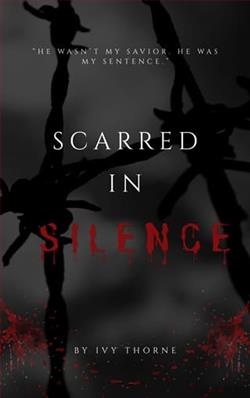Page 5 of The Children of Eve
Seeley made a final check of his surroundings to determine that nothing obviously incriminating had been left behind. There was little he could do about stray skin and hair, but he wished the Mexican authorities luck with their investigation—should there ever be one, which he very much doubted. Seeley had already made a call about Elizalde’s body, and his employer would ensure that it was gone within the hour. As for the police, their attention would be drawn to the fact that Elizalde was a sick man, facing an agonizing struggle with illness. It may have been that his courage failed him, and he had taken himself off to die. In the unlikely event that they persisted with their inquiries, pressure would be applied. Seeley’s employer would not want anything to impede progress and had a way of encouraging obedience. But should Seeley encounter further resistance, other measures were available.
Briefly, Seeley regarded what was left of Elizalde, and the fragments of the Great Goddess, her subordinate position in the pantheon of deities now confirmed. Seeley reflected on the money he was being paid and decided it wasn’t enough to compensate a man for having his beliefs about life and the universe upended so spectacularly. Regrettably, it was too late to back out now, not unless he wanted to end up like Antonio Elizalde. Still, he was forced to admit to a particular curiosity about what was to come.
“Vámonos.”
Seeley couldn’t help but shiver. If dust could have spoken, it would have sounded thus. He hoped the current situation might be resolved quickly, leading his employer’s agent to return to wherever she’d come from. He also hoped he’d come out of it with his life, because he reallydidn’t want to die. Before he had taken this job, he had feared only the pain of death; now he was concerned about what might come after. He conceded the possibility that his employer might be so in name only, and he was in fact working for another,thisother.
Which, Seeley decided, would be very unfortunate indeed.
CHAPTERVI
To the north, in Scarborough, the bedroom door was ajar. The girl stood on the threshold and regarded the sleeping figures: the woman on her right side, her back to the girl’s father; and he, also on his right side, his left arm outside the comforter, his hand resting on the woman’s exposed shoulder.
You have forgotten who you are, the girl thought.It cannot last.
Her father’s eyes opened. He sat up and looked toward the door. Delicately, so as not to wake the woman, he pushed aside the comforter and stepped from the bed. He was naked from the waist up, and despite the dimness, the girl could make out the healed wounds, the physical evidence of torments that ran older and deeper than even he could recall.
“Jennifer?”
He whispered her name, and there was such tenderness to it, such longing, that she wanted to run to him. He would hold her against him, and she would feel safe.
Feelsafe: Another illusion, because feeling and being were not the same. The girl and her mother had learned that to their cost. He had not been able to protect them, and they had died for it. She did not blame him. The forces ranged against him, against all three of them, were more powerful than they could have imagined. Had he been with them that night, he too would have been killed.
Again.
Why don’t you remember? All those lives, all the torment. All the punishment.
Her father walked toward the door, only to pause on his side of the gap.
You have made recompense over and over, but still it’s not enough, and it never will be. That’s why it has to come to an end. We will bring it to an end, together.
“JENNIFER.”
I spoke the name again to the dark, but now there was only absence.
She was gone.
2
And her being dead was filling her like fullness. For like a fruit all of sweetness and dark, she too was full of her immense death.
Rainer Maria Rilke, “Orpheus. Eurydice. Hermes.”
CHAPTERVII
For more than two decades, the first Friday of each month had been Art Walk night in Portland. During the summer, craft stalls sprang up along Congress Street, galleries opened late, and local artists took advantage of the occasion to launch new collections. In winter and spring, when the days were too short and the nights too long, the Art Walk added liveliness to the city and gave people an excuse to move around instead of hunkering down in one place while waiting for the sun to return. You didn’t necessarily have to love art to enjoy the Art Walk; you just had to like it better than nothing at all.
The Triton Gallery was the latest addition to the Maine art scene. Situated in an old warehouse off Forest Avenue, within striking distance of the upmarket Batson River Brewing & Distilling, the gallery’s considerable square footage had already proven popular with artists who favored large-scale installations. Of course, those artists first had to impress the owner, Mark Triton, but Zetta Nadeau must have managed it because her latest pieces were now filling its spaces. Zetta worked in metal, creating abstract and figurative sculptures, and was gaining a national reputation. A former state governor had even asked her to design and construct a pair of ornamental gates for his property, a lucrative commission at a time when Zetta needed the money. She’d told him to take a hike on the grounds that he was a jackass, and whileshe couldn’t prevent jackasses from buying her art, she wasn’t about to start producing it at their behest.
No former governors were present at the Triton Gallery on this particular evening, but enough of the local great-and-goods had shown up to add color to the society page of theMaine Sunday Telegram. Triton himself was absent, but he wasn’t a Maine native and had business interests that extended beyond the Northeast. Instead, the gallery’s curator, Grace Holmes, took care of the introductions, praising Zetta as one of the state’s most striking and innovative young artists and lauding the works on display as evidence of a new phase in her development. I thought Holmes went on too long, and there was an edge to her voice that hinted at desperation, as though she was trying hard to argue a case about which she remained unconvinced. It explained a mood that felt restrained—so much so, in fact, that I’d heard someone ask when we might be permitted to view the body. This was Zetta’s first exhibition since a disastrous opening in New York three years earlier, the subject of a legendary takedown inThe New York Times, the kind that acquaintances discussed with sympathy tinged by secret relish and rivals shared with outright joy, if tempered in the wiser by a sense of “There but for the grace of God…” Where theTimesled, others followed, resulting in a pile-on that had almost destroyed Zetta’s confidence, not to mention her career.
Now here she was, presenting her first show since theTimesmauling, albeit on a local stage. She specialized in oversized compositions in bronze and steel that, on closer examination, revealed their resemblance to tortured beings, in the manner of that old Warren Zevon lyric about trees like crucified thieves. For the Triton Gallery, Zetta had reined herself in somewhat, and alongside a central sextet of compositions ranging from six to twelve feet in height were smaller works that did not exceed two feet, with a few no more than half that size. In truth, they looked lost in the vast zone, like afterthoughts to a conversation that had since moved on.
Sharon Macy peered at the price tag on the figurine nearest us, which resembled a twisted angel.
“It’s eight thousand dollars,” she said. “Can it be worth that much? I once paid five hundred dollars for a painting and didn’t sleep right for a month. If I spent eight thousand, I might expire from insomnia.”
“Ask Louis,” I told her. “He knows more about art than I do.”















